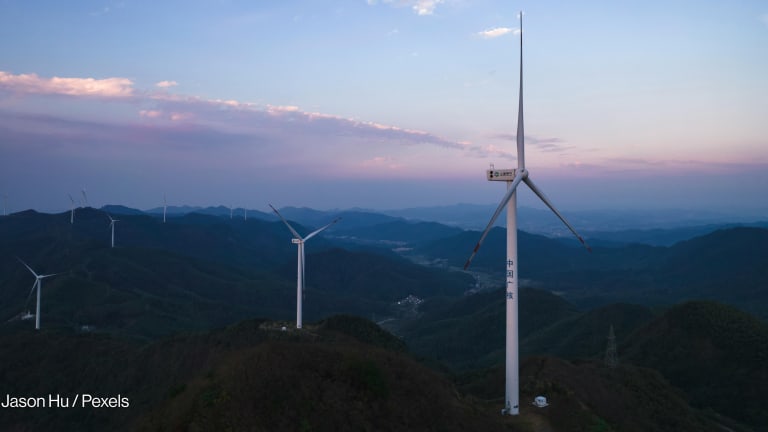
LONDON — The postponement of COP 26 by a full year will make little difference to climate action, according to the former head of the body that runs it.
Christiana Figueres, former executive secretary at the United Nations Framework Convention on Climate Change, said that while the U.N. Climate Change Conference meetings are “helpful,” they “do not determine reality” on climate action.
Asked in an interview for Devex World if there would be an impact on momentum as a result of skipping the United Nations’ flagship climate summit this year, Figueres replied, “No, actually it’s a fallacy to think that we ‘haven’t done anything’” this year. She argued that there has been greater action on decarbonization by the private and financial sectors than ever before.
“We haven’t met physically … but action is continuing on [the] ground.”
— Hindou Oumarou Ibrahim, Chadian climate activist“Let’s remember that COPs are very helpful political moments, but they do not determine the reality. What is important here is ... how much are we actually reducing emissions. … And we’ve actually advanced pretty well this year and will continue to do so,” she said. “What needs now to ramp up is the political will of governments to assume even more ambitious targets by next year.”
COP, or the Conference of the Parties, is the decision-making body responsible for monitoring and reviewing implementation of the U.N. Framework Convention on Climate Change, an international environmental treaty signed by nearly 200 states.
Its annual meeting in 2015, known as COP21, resulted in the landmark Paris Agreement on climate change. COP 26, which should have been held in Glasgow, Scotland, last month, was anticipated to be another significant moment.
Countdown to COP 26: What are the development sector's priorities?
The postponement of COP 26 has given the development sector more time to organize and push for a successful outcome. With a year to go, here's what experts are watching.
The United Nations Environment Programme’s website described it as “the most important intergovernmental meeting on the climate crisis since the Paris agreement was passed.” It would have seen the first five-year review of the pledges made in 2015, and advocates hoped countries would increase their “nationally determined contributions,” or NDCs — commitments to cutting greenhouse gas emissions.
However, the meeting was postponed due to the COVID-19 pandemic and will instead take place in November 2021.
Figueres spoke to Devex Managing Editor Deborah Charles alongside Hindou Oumarou Ibrahim, a Chadian climate activist and expert on Indigenous people’s adaptation to climate change.
Ibrahim, who was present at the signing of the Paris Agreement, agreed with Figueres’ assessment. “We haven’t met physically … but action is continuing on [the] ground,” she said, noting that communities cannot wait for COP to act on floods and other climate-related issues that are affecting them.
“Also at the national level, they didn’t wait [for COP] before [revising] their NDCs. They are continuously doing the revision of the NDCs across all countries,” she said. While she hoped activists and leaders could meet again at COP, she said, the focus needs to be on action.









